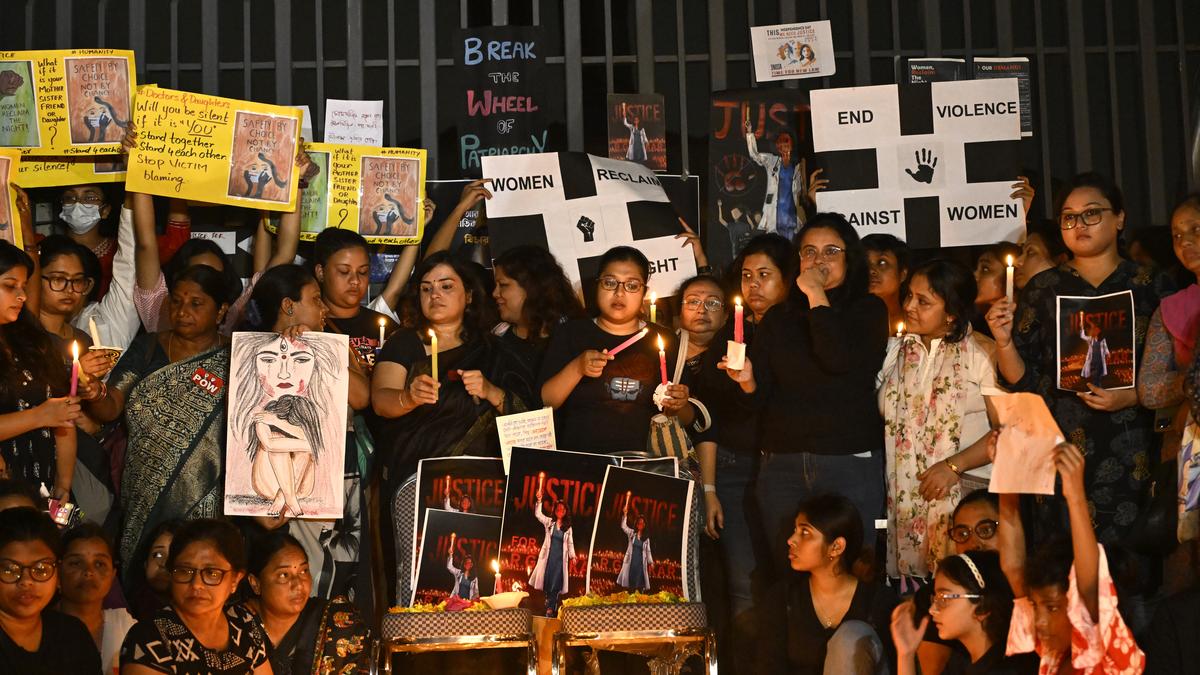Dr. Soumya was on night duty on August 11 at Hyderabad’s Nizam’s Institute of Medical Sciences (NIMS). “I felt uneasy being alone in the duty doctor’s room,” she shared, reflecting the growing sense of insecurity among doctors like her in Telangana, especially following the recent rape and murder of a female doctor in Kolkata’s R.
G Kar Medical College. The safety of doctors, particularly women doctors, is increasingly under scrutiny after this incident. Medical professionals from various medical colleges and government hospitals in Telangana have expressed concern about the lack of adequate security on the hospital premises.

At NIMS, while security personnel are stationed outside the hospital, there is a noticeable absence of security within critical areas such as the Intensive Care Unit (ICU), particularly during night time. Dr. Soumya Moguram, a second-year PG resident, highlighted that despite a senior nephrologist being assaulted by patient attendants last year, the security situation has not improved.
She also pointed out issues at the girls’ hostel, where the security guard on duty is often found asleep, failing to monitor who enters or exits the premises. “In the emergency wards, where two or three security personnel are stationed, their presence is frequently insufficient to prevent attacks on doctors,” she said. Dr.
Ramya Varkala from Government Medical College, Nizamabad, who was attacked by a patient’s attendant last year, highlighted the lack of attention to doctors’ resting rooms in government hospitals. She explained that the resting room at GMC Nizamabad has only three beds, with doctors working different shifts, leaving the door constantly open. With no security presence near the resting room, she fears that a similar incident could occur again.
“When a written representation was submitted to the District Collector regarding this, we were informed that enough security staff is not available to be posted everywhere,” she said. In December 2019, the Telangana government issued an order to create 164 posts under the Director General of the Telangana Special Protection Force (TGSPF) for deployment in government teaching hospitals and medical units. According to the order, 128 personnel were to be deployed at eight government teaching hospitals, and another 36 personnel assigned to district hospitals in Nizamabad and Mahabubnagar.
However, Dr. Ramya noted that only two SPF personnel are currently stationed at the hospital outpost in Nizamabad, and they often arrive late during emergencies. At Hyderabad’s Osmania Medical College, while two SPF personnel are posted in the casualty ward, other wards with critically ill patients remain vulnerable.
Dr. Chandrika Reddy, spokesperson of the Telangana Junior Doctors’ Association, stressed the need for increased security. “Especially given that OGH handles over 700 to 800 outpatients daily, stronger security measures are essential,” she asserted.
Copy link Email Facebook Twitter Telegram LinkedIn WhatsApp Reddit Telangana / Kolkata / sexual assault & rape.



















